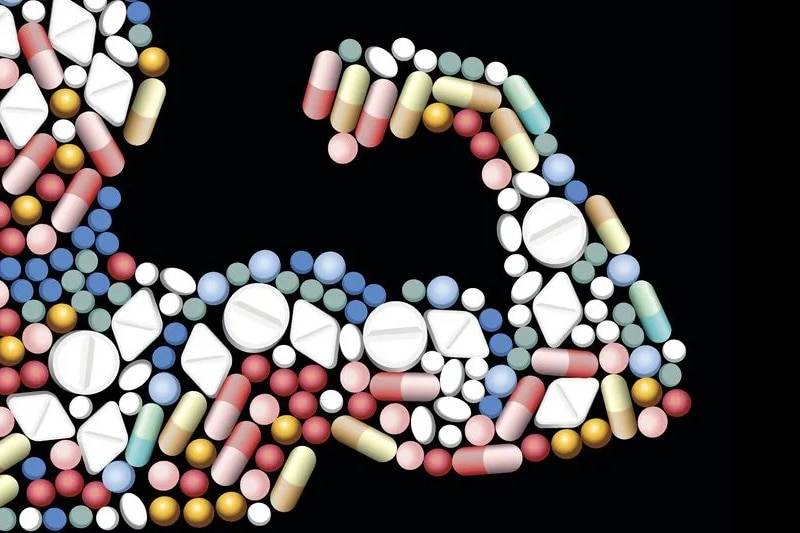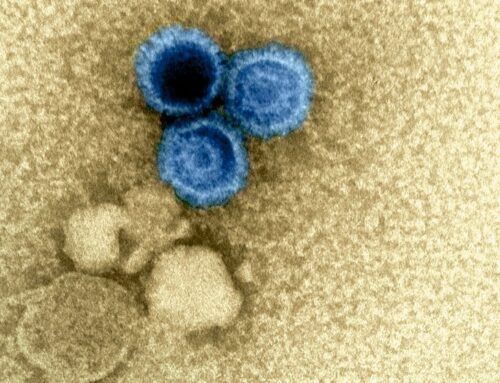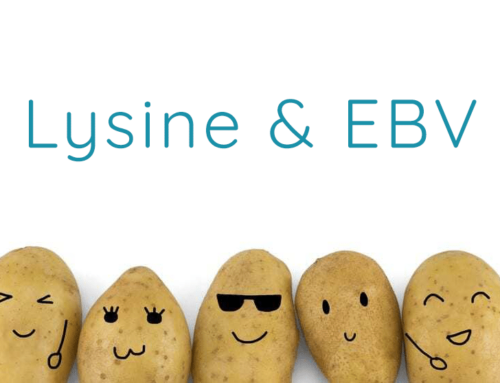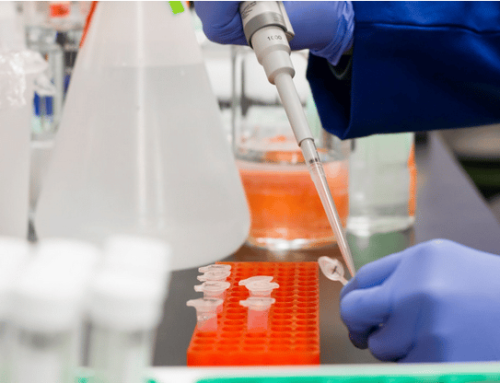Should we suppress the immune system with corticosteroid medications in order to heal from chronic EBV?
I will start by saying that
Immunosuppression is the worst thing
you can do when you already suffer from EBV.
Let’s start by taking a small trip into fundamental concepts and belief systems. I will not dive into physiology much, I promise. Not at this time (for that, enjoy my book on EBV!).
If you have EBV, does it mean your immune system is overworking and you have to suppress it? No – suppressing it is the worst thing to do.
A working immune system does the job of keeping infections in check. We walk every day not even being aware that the immune cells are patrolling your territory and tackling any potentially infecting pathogens. We do not have to know we blink or breathe in order to do that. The body does that for us. That is the absolute beauty of our immune system too.
However, when you have an ongoing chronic EBV infection, your immune system can get overtaxed. Just think: it takes a lot to tackle a serious infection that never seems to end, day in and day out. It would drain any system!
Consider the fact that 90-95% of the global population carry Epstein-Barr Virus, many without any detrimental health effects.The difference between you and a person who has never had a severe EBV infection or a bout of Mono lies in something called “an opportunity”.
My EBV’s opportunity opened in fall 2021, after my repeated mold exposure, house after house: the emotional, physical and financial stress related to severe allergies to mold (including a trip to ER) all led to my very first confirmed EBV flare up. The insult repeated when we moved 3rd time, this time into a house with a smart meter, at which time EBV reactivated in the form of vertigo. We have so many stories like mine in our community.
EBV is simply an opportunist.
Your immune system is your best ally if your goal is to heal from EBV and live your life fully. The opportunity for EBV to attack you comes in various forms, most notably when stress hits your life the hardest.
Let’s say, you have a highly stressful circumstance. Stress is a chemical soup the body creates that is very well proven in science to cause EBV reactivation. You also lose more key nutrients in urine (nutrients that your immune cells rely on), while you may also overindulge in refined sugar, which stalls your immune system for a few hours. Triple whammy. You find yourself in an EBV flareup, and that is quite predictable. You probably already know that and remember those exact times in your life. One of my now-thriving clients once confessed that EBV was her biggest teacher. She was pushing herself professionally beyond her capacity to sustain it, creating great havoc (stress) on the body, and turning EBV on. Her EBV completely disabled her.
EBV cannot thrive
when our life is balanced and the body nourished.
What Does Nutrition Have to do with Your Immune System and Your EBV?
Immunologists forget that immune cells are like other cells and their function and integrity depends on their status, most importantly, nutritional status. This is why, the best long term policy for EBV recovery from my perspective is neither to suppress or stimulate the immune system but to provide the building blocks (nutrients) for our overworked and starving immune cells.
Our immune cells require foundational nutrients.
These come from our diet.
Food is good for you and your immune system. In addition to the dietary foundation, the goal is to also create mental, emotional and physical space to open the healing processes so the body can do what it does the best: heal itself. Easy to say, so much harder to do. I know. That’s why we provide a lot of support in our EBV Recovery Program.
In the EBV community there is a growing belief that worries me that goes like this:
“If I have a chronic EBV and my life is turned upside down because of it, it must mean that there is something wrong with my immune system.”
Yes, people with already compromised immune systems do have an increased risk of EBV (more on that later), but most people with EBV are not immune-compromised. Their immune system is simply overworked and overwhelmed. The bottom line is that your immune system is a brilliant self-directed system that knows how to keep you alive. It does so much trying to clear EBV for you. But you need to support it with the nutrients and stress management or it is a losing battle.
Research is clear: when your nutritional status drops,
your EBV becomes more aggressive.
Eat to nourish.
We are walking nutritional deficiencies! If you need proof, there is an entire chapter showing you study after study in my book. Nutritional deficiencies have been worsening, have rocked our world, and we do NOT even know what hit us.
Some estimate that up to 80% of chronic conditions are actually nutritional deficiencies. Yes, this means that up to 80% of your medical issues may simply be a presentation of a nutrient deficiency. For example, if you have a true Vitamin C deficiency you will develop scurvy (bleeding gums) and we actually have reports of this among college students in the US! If your Vitamin C deficiency worsens, you become delirious and then you die.
Deficiencies are powerful vehicles for disease manifestation.
It is not different for EBV.
We are grossly deficient in key nutrients. That inevitably weakens your immune system and invites EBV back. Some of the symptoms that affect you now may indeed be directly caused by nutritional deficiencies of particular nutrients.
Nutrients are the major inhibitor of EBV reactivation.
One day my friend, a nurse practitioner, an owner of a prestigious women’s thyroid clinic, ran a hormonal panel on me and till this day she shows it as a sample of what the results should look like, which her medical team has never seen. THAT IS ALARMING. When I visited her a few years later, her PA introduced herself to me and said, “Oh, you are the one with the perfect hormone panel!!!!” [hm…] As a nutritionist, I am acutely aware of how fast nutritional deficiencies can manifest and how fast stress can deplete your nutrients as well, and so I take measures. That is all. I hope this empowers you to invest there.
Immunosuppression and EBV Reactivation
Immunosuppressed individuals
are at increased risk of EBV.
And research confirms it. Persistent EBV over years or even the entire life of the host (you) can occur, especially in immunodeficiency, in which case the immune system is not able to eliminate or even slow down the pathological action of EBV (Eligio et al., 2010).
As EBV hijacks/infects more key immune cells such as B cells, T cells, and natural killer (NK) cells (Jones et al., 1988), it weakens the immune system further. Immunosuppressed individuals are therefore at a higher risk of EBV reactivation.
Remember that these processes can be turned down or turned off with targeted nutritional therapy, which is what we teach in our EBV Recovery Program.
Autoimmunity and Corticosteroids
We know from research that EBV can trigger autoimmunity. There are many autoimmune conditions that are either directly caused by or associated with (if more studies are needed) this virus, many of which I listed on this website and in my book. Of note is Dr. Harley, who single handedly identified seven common autoimmune conditions as triggered by EBV, and these are MS, Lupus, Idiopathic Juvenile Arthritis, Rheumatoid Arthritis, Type 1 Diabetes, IBD and even Celiac.
Of course, many other factors can cause these and other autoimmune conditions. However, if EBV labs confirm the presence of the virus, then anti-EBV therapy should be the first line approach to the condition and not immunosuppressive therapy.
One of the most common autoimmune conditions we see in women in our community is Hashimoto’s Thyroiditis, in which the immune system attacks the thyroid gland. Sadly, it often goes undiagnosed or misdiagnosed as hypothyroidism, and if EBV is what caused it, the damage to the thyroid gland continues.
Hashimoto’s Thyroiditis can be triggered by a number of infective agents including EBV and H. pylori, and as you can imagine, suppressing the immune system with medications would hardly be a solution.
So while steroid medications can be a short term tool to stabilize the body in an emergency situation, relying on it for a condition caused by EBV is not the right answer.
Are Steroid Medications the Best Way to Heal from EBV?
Steroid medications suppress your immune system.
Their job is to help patients temporarily with their physical symptoms, espeically in grave and emergency situations. Their job is not to treat the cause of the illness but to make a person more stable by suppressing the medical symptoms.
This is a very tricky medication and comes with substantial and sometimes dangerous side effects, especially if one has to rely on it long term.
Now that we have mapped out the relationship between your EBV and your immune system, I think you can see that corticosteroids and other immunosuppressants can backfire and actually turn on EBV reactivation precisely due to their pharmaceutical immunosuppressive effect, although they may also calm symptoms for a period of time (call it a honeymoon period). This has been confirmed in research for EBV as well as other viruses (Ma et al., 2013).
If you are already immunocompromised, adding a glucocorticoid medication is literally an invitation for EBV:
“Glucocorticoids [are involved] in the pathogenesis of
EBV-related lymphoproliferation of immunosuppressed
patients (Quaia et al., 2000).”
Think of your history. Did you have to take steroid medication at any time? Did you experience flu-like symptoms, pain, or severe fatigue? Did you get mysteriously very sick, which felt like a really bad EBV flare up? It is not uncommon to hear such a story in our EBV community.
Discuss your options with your doctor before you decide to take this type of medication. In particular, ask your doctor to address its side effects, safety, and any possible alternatives.
The knowledge of reactivation triggers and nutritional and lifestyle factors that support the immune system will benefit your ability to minimize EBV reactivations and heal from chronic EBV.
If you have questions about your EBV and need support for it, connect with me at Clarity Session or join our EBV Recovery Program.







Leave A Comment